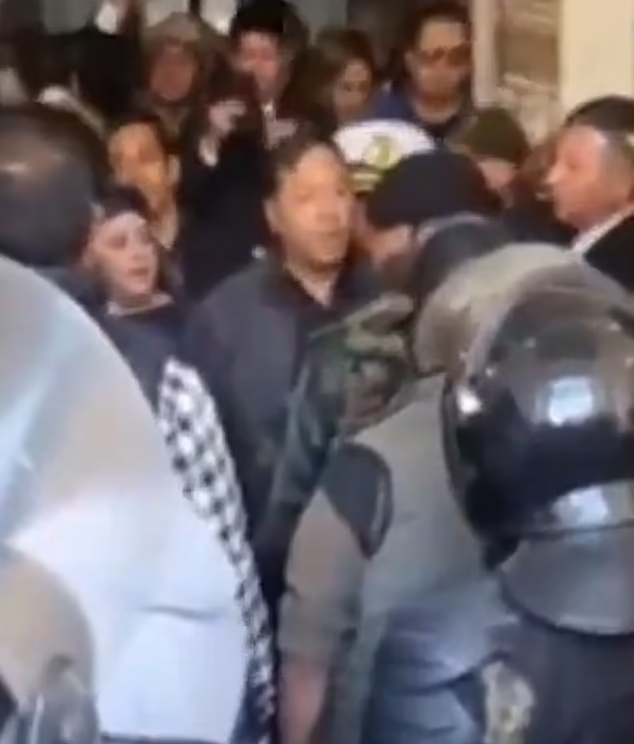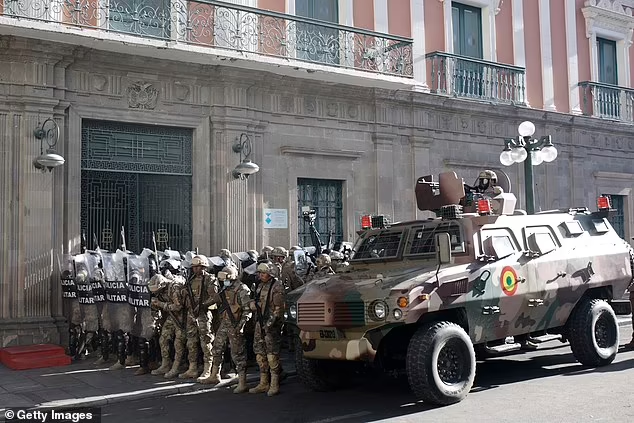Bolivia narrowly avoided a military coup on Wednesday as President Luis Arce successfully faced down rebel forces that had laid siege to the government palace in La Paz. The dramatic events, which saw armored vehicles ramming the doors of government buildings, ended with the arrest of Army General Juan José Zúñiga, the apparent leader of the rebellion.

The crisis unfolded when military personnel and tanks surrounded municipal buildings, with tear gas filling the streets of the capital. President Arce confronted General Zúñiga in the hallway of the Palacio Quemado, firmly ordering him to withdraw his troops and denouncing the “irregular” deployment of forces.
Hours after the initial confrontation, Zúñiga was arrested following the attorney general’s decision to open an investigation. Before his arrest, the general made the surprising claim that Arce had asked him to stage the uprising as a political maneuver to boost the president’s popularity – an allegation Arce vehemently denies.

This attempted coup follows months of growing tensions in Bolivia, marked by economic hardship and intensifying protests. It also highlights the deepening rift between Arce and his former ally, ex-President Evo Morales, as they vie for control of the ruling Movement for Socialism (MAS) party ahead of the 2025 elections.
Despite the chaos, the coup attempt appeared to lack significant support. Even Arce’s political rivals rallied to defend democracy and condemn the uprising. Regional leaders, including the Organization of American States and neighboring countries’ presidents, swiftly expressed outrage at the events.
The failed coup serves as a stark reminder of Bolivia’s turbulent political history. Since 1950, the country has experienced more coup attempts than any other nation globally, with the last one occurring in 1984.

As Bolivia grapples with the aftermath of this latest political crisis, questions arise about the stability of its democratic institutions and the underlying factors fueling such unrest. The incident also draws attention to the ongoing economic challenges facing the country, which has seen its once-booming economy become one of the most crisis-stricken on the continent.
President Arce’s ability to maintain control during this crisis may have strengthened his position momentarily, but the underlying political and economic tensions remain. As Bolivia moves forward, the international community will be watching closely to see how the country addresses these challenges and works to prevent future threats to its democratic stability.



